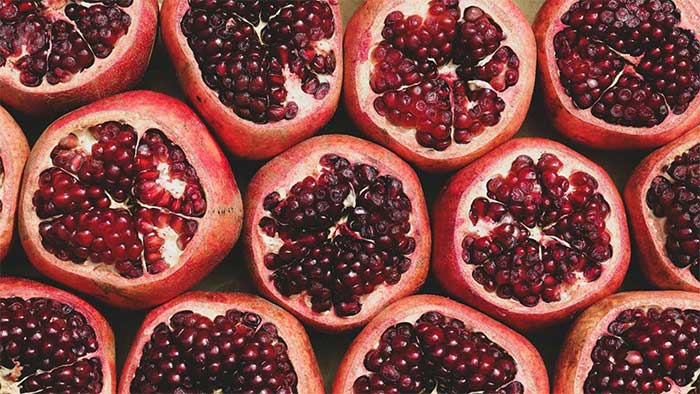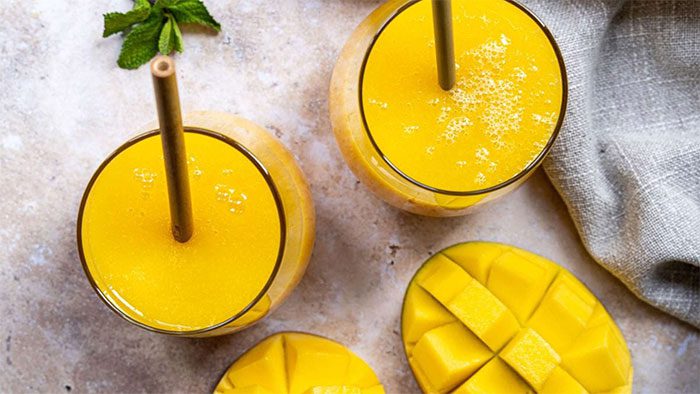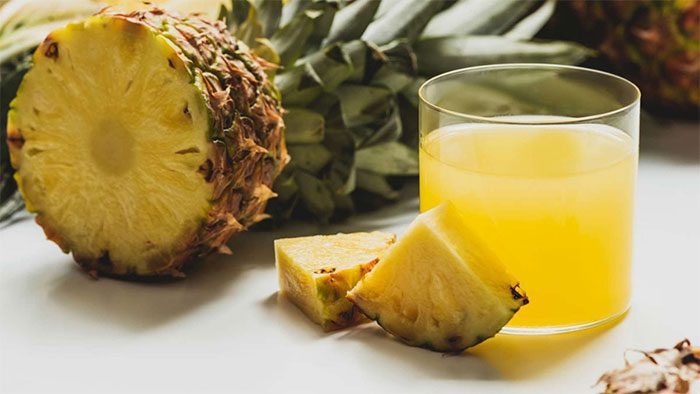Fruit juice has long been regarded as a nutritious beverage by many; however, some types can cause a rapid spike in your blood sugar levels.
Fruit Juices That Can Surprisingly Raise Blood Sugar Levels
We all know that fruit juice should be consumed in moderation due to its high sugar content, but how can we determine which fruit juices have the highest sugar levels when choosing the best options?
Follow this simple guide to understand the sugar content in the most popular fruit juices and which ones to choose to keep your blood sugar spikes to a minimum.
1. Plum Juice
Plum juice tops the list with 42 grams of sugar per 8-ounce (approximately 240ml) serving. Although it is often recommended for its digestive benefits, the high sugar content can cause a significant spike in blood sugar levels.
While it is a great source of nutrition, consuming whole plums with a bit of Greek yogurt is a much better way to enjoy all those nutrients without causing a spike in blood sugar.
2. Grape Juice
Next is grape juice, containing about 36 grams of sugar per serving. Its sweet flavor and high antioxidant content are appealing, but the sugar content is worth considering.
Enjoying whole grapes with cheese or yogurt can help minimize blood sugar spikes.
3. Pomegranate Juice

Pomegranate juice ranks third in terms of sugar content.
Pomegranate juice is indeed delicious and known for its antioxidant properties and health benefits; it can be very tempting to use it regularly. However, pomegranate juice contains 31 grams of sugar per serving.
The best way to enjoy pomegranate is to add it to your favorite salad.
4. Cranberry Juice
Store-bought cranberry juice is often sweetened to balance its natural tartness, containing about 30 grams of sugar per serving. It is beneficial for urinary health, but be aware of the added sugars in different nutritional brands.
5. Cherry Juice
Cherry juice is popular for its rich flavor and numerous health benefits, including improving sleep. However, each serving contains about 30 grams of sugar, making it more like a dessert than a healthy drink.
6. Mango Juice
Tropical and sweet mango juice has about 29 grams of sugar per serving. It is rich in vitamin C, a valuable nutrient, and natural sugars. Try adding mango to smoothies to retain all the fiber found in the fruit, or enjoy the whole fruit with a bit of yogurt or nuts for a healthier option.

Mango contains about 29 grams of sugar per serving.
7. Pear Juice
Pear juice, with 27 grams of sugar per serving, offers a sweet and sometimes creamy flavor. The issue with pear juice is that it lacks the fiber found in whole pears, which helps regulate sugar absorption. It’s best to choose to eat whole pears instead of drinking pear juice or add them to smoothies or oatmeal.
8. Pineapple Juice
An 8-ounce serving of pineapple juice contains about 25 grams of sugar. Even though the sugar content of this tropical and refreshing juice is much lower than that of plum or grape juice, eating pineapple is still safer than drinking it when controlling blood sugar spikes.

Eating pineapple is still safer than drinking the juice.
9. Apple Juice
Apple juice contains about 24 grams of sugar per serving. It lacks the fiber present in whole apples, which can help minimize blood sugar spikes. Compared to other fruit juices, its sugar content is much lower, but it is still enough to raise your blood sugar levels.
10. Orange Juice
In conclusion, orange juice contains approximately 21 grams of sugar per serving. It is a popular breakfast choice, rich in vitamin C but should still be consumed in moderation due to its sugar content. Enjoy the orange season by eating whole oranges or adding them to your favorite salads.



















































